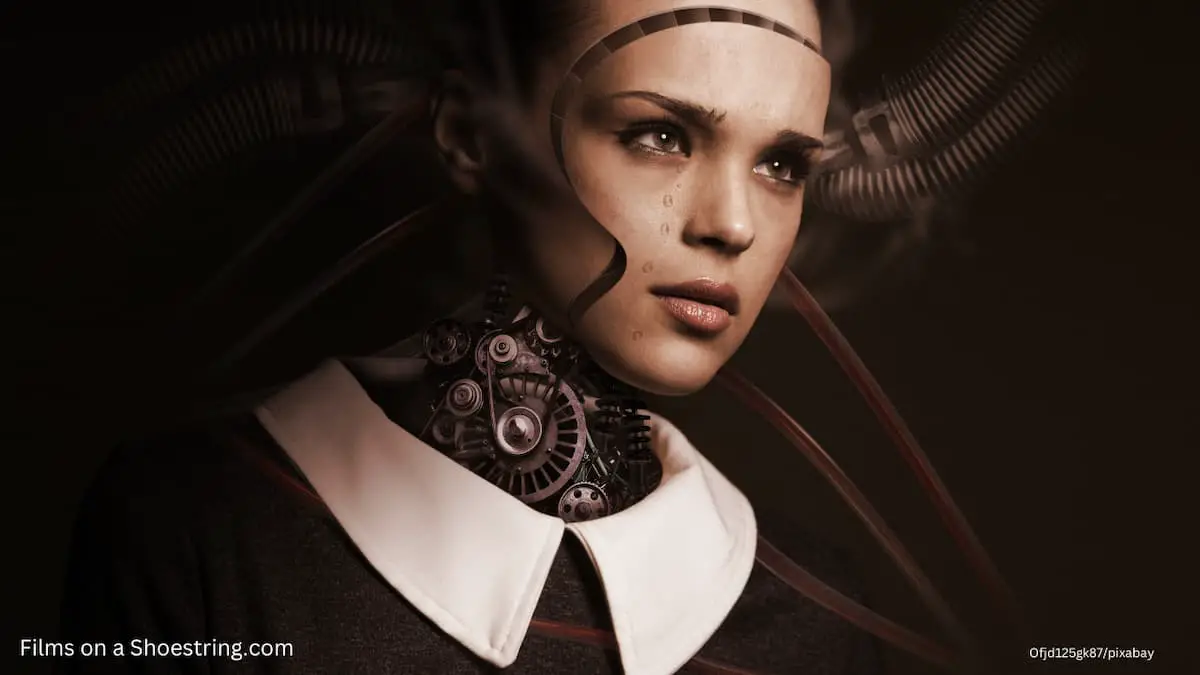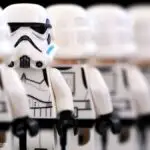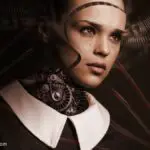Is the job of an actor safe from technology, or will actors be replaced by robots, CGI or AI?
The increasing use of technology in the entertainment industry has led to the debate of whether actors can be replaced by machines. While some argue that technology can create extremely realistic performances, others believe there is a level of human emotion and connection that cannot be replicated through CGI or automated systems.
One reason why people may prefer to watch real actors on screen is because it allows for more complex storylines. As humans, we are able to convey emotions through subtle nuances and facial expressions which are difficult for computers to replicate. This means that stories can be unpredictable and engaging as viewers are exposed to a range of different motivations and reactions from characters.
The presence of real actors also provides visual diversity, something which technology often struggles with. Different body types, skin tones, and ages cannot easily be created with animation or CGI; making it difficult to accurately represent the reality of our diverse world. Having real actors allows us to see a variety of faces on our screens and appreciate their unique qualities; encouraging viewers to embrace diversity in all its forms.
Importantly, many people want to watch real actors on stage and screen because they have a strong emotional attachment to a particular star. Fans will often follow an actor’s career throughout their life and feel as though they have a personal connection, even if they never see the performer in the flesh. That’s why the right actor signed up to a feature film will boost the financing to get it made. And that feeling can’t be replaced by robots.
But as artifical intelligency rapidly advances, is the human actor about to become a rarity?
The Rise of Artificial Intelligence
Introduction to Artificial Intelligence (AI) is the study of how computers can be programmed to think and act intelligently.
AI has become increasingly popular in recent years, with its applications in numerous fields such as healthcare, finance, business, and even entertainment, and it’s almost invisible to customers.
Popular imagination sees AI as a synthetic humanoid helping around the house. But in reality, AI helps automate processes, reduce costs and increase efficiency for businesses, invisible in the background as software unless emloyees lose their jobs.
AI has already made significant strides in automating tedious tasks that would have been too time consuming for humans. In addition, AI has the potential to improve decision making by providing more accurate data and insights than humans could ever hope to provide.
As AI continues to grow, it will have an increasing impact on our lives and the way we interact with technology.
The Impact of AI on the Acting Industry
The acting industry is facing the challenge of emerging technology, as AI is becoming increasingly commonplace in the entertainment world.
Although an art form, movies have always been driven forward fast by emerging technologies. Ten of the Lumière brothers’ short films were public screened to paying audience members in Paris on 28 December 1895. Special effects were used within a couple of years, the first 60 minute film aired in 1906, and syncronised sound recording appeared in the 1920s. By the 1930s colour film was commonplace, and 3D films were popuar in the 1950s. Star Wars in 1977 used pioneering digital motion control photography and the animation team at Pixar have taken humorous storytelling to new levels with developments in rendering, computer graphics and other animation tools.
Therefore, it’s no surprise that filmmakers take an interest whenever there’s a chance of automation. AI can automate many aspects of filmmaking, providing cost-efficient solutions and freeing up creative minds to focus on other tasks. It can also be used to replace voice acting humans with realistic sounding AI voices, and show deep fake actors on screen. You may already have heard and seen these on social media adverts, where the presenter is standing unusually still.
While some worry that this could lead to actors being replaced by indistinguishable robots, it is unlikely that this will ever happen altogether. Actors still bring a unique set of skills and emotions to their work that cannot be replaced by a screen replica, and are driven by a vocational need to entertain which will stimulate new and creative ways to perform.
However, it’s certainly possible that in the near future an animator or CGI artist, working with AI technology, could replicate a human’s natural movements and sounds to replace the background artists and some of the actors. There’s long been a prediction that technology will take away jobs on a massive scale, and actors already have enough problems earning enough to pay the bills.
Pros of Replacing Actors with Robots
The rise of artificial intelligence has opened up the possibility of robots replacing actors in movies and television shows. AI is capable of replicating the movements, small gesture, and facial expressions that human actors make, making them suitable for a variety of roles. We’ve impressive technology come to life in Lord of the Rings, and Avatar, though crucially the actors had to perform the roles first and the technolody built on the actor’s work.
There are several benefits to using AI in place of human actors.
The primary benefit is cost savings. Low cost productions and adverts can save time and money by avoiding expensive talent and crew fees. In the future a developer could make an AI image perform in scenes with stunts or complex choreography that require precise timing, without years of training at drama school to learn triple threat and acting methods. Disney’s Stuntronics introduced the era of the robot stunt man.
YouTube: How Disney Designed a Robotic Spider-Man | WIRED
Additionally, human performers sometimes get sick or have other unpredictable issues that can affect the production schedule. An actor’s performance can be affected by something outside their control, like fatigue or emotional distress, or bad direction. Some people are difficult to work with, though most actors understand they are working in a collaborative environment with the rest of the cast and crew.
Movie stars already have stand ins to prepare shots or act as a body double for shots with hands etc.
Cons of Replacing Actors with Robots
The idea of replacing human actors with robots has been around for some time, but the cons far outweigh any potential benefits. Replacing real actors with AI, CGI or automated robots would be a huge mistake for many reasons.
Firstly, it removes the actors that bring audiences to the cinema. Even animated films use movie stars as voice actors. People like to see and hear their favourite actors, and remember where they’ve seen other actors on screen before.
Movie stars aren’t just a puppet reading out a script. They usually have big personalities (although some have ASD, which makes them steer clear of social settings), and front huge marketing campaigns for clothing and perfume brands. They have crowds of fans waiting for hours outside public events to cheer for them. It’s all part of a much wider industry.
Secondly, really good CGI is expensive, even if many of the well trained people in the industry go on to find a new career elsewhere with better security and pay. The current AI actors are seen in cheap ads where a low budget really is the deciding factor.
Could AI Replace Human Emotion in Movies?
The prospect of artificial intelligence (AI) replacing human emotion in movies is a fascinating one. AI has already made its way into Hollywood to automate the filmmaking process, freeing up creative minds for more imaginative endeavors. But could it ever replace the intricate emotions that humans bring to a film?
The answer is no – at least not any time soon. AI actors are still in their infancy and lack the physical and emotional range of a human actor. Also, unlike humans, AI does not have an understanding of context or nuance, making it unable to capture the subtleties of human emotion or expression unless it is modelled first.
That being said, AI can still serve as an invaluable tool in filmmaking. For example, AI can be used to predict audience reactions to scenes based on data analysis. It can also be used for crowd simulations and automated editing functions like facial recognition tracking and motion capture animation.
Ultimately, the marriage between artificial intelligence and human creativity will only make movies better – by finding new ways to work together and maximize everyone’s talents. However, when it comes to capturing real emotion on screen, there’s no substitute for human actors – an invaluable part of movie-making.
Will AI Take Over Jobs That Require Creativity?
With the advancements in artificial intelligence and robotics, many have raised questions about whether these technologies will replace jobs that require creativity. The answer is complex. On one hand, AI has proven to be extremely capable of learning and can be used to create digital art tools that can replicate certain artistic activities. On the other hand, many jobs require a level of human creativity and empathy which AI cannot replace.
Even in fields such as medicine or law where AI is being used for diagnosis or legal advice, there is no replacement for a human touch when it comes to making decisions or providing personalized care.
The combination of advanced robotics and artificial intelligence may mean that millions of jobs will be automated over the next few years but it’s unlikely that this means an end to creativity in the workplace entirely.
In fact, with technology becoming more sophisticated every day new fields are opening up that weren’t previously available before, and many actors now find that performing for computer gaming graphics is a lucrative, exciting, and competitive area of work rather than one they must consider just to pay the bills. The job description of a working actor is very different to what it was fifty years ago.
What Would be the Impact on Movie Budgets if Robot Actors Were Used?
As technology continues to evolve, the entertainment industry is beginning to explore the possibility of replacing human actors with robots. The idea of robot actors has been around for some time, but now it’s becoming a reality as movie studios begin to embrace the potential cost-savings and creative possibilities that this new technology offers.
Robot actors have the potential to save movie studios a considerable amount of money on production costs due to their lower wages and lack of need for breaks or overtime pay. They can also be programmed with specific roles and lines that are difficult for human actors to deliver convincingly, allowing directors to create more complex scenes in less time. Additionally, these robots can be used for stunts and dangerous scenes that would otherwise require special effects teams or stunt doubles.
However, there are still many challenges that need to be addressed before robot actors become commonplace in Hollywood films. For example, computer-generated animation is typically expensive and time-consuming, making it difficult for smaller budget films to afford such effects. Additionally, robotic acting requires a large degree of programming sophistication in order to create realistic facial expressions and dialogue delivery.
Lastly, it remains unclear whether audiences will accept robotic performances in place of human ones, as viewers may feel emotionally disconnected from the characters on screen. Even if it’s an artifical image on screen, such as in animation, the use of movie stars as voice actors provides the link to someone the audience is familiar with.
Could AI Ever Match Human Performance in Terms of Acting?
Could AI ever match human performance in terms of acting? Many believe the answer is an adamant “no”.
Artificial intelligence (AI) has come a long way, but it still does not possess the same ability to express emotions as humans do. While AI can be programmed to recognize facial expressions and tone of voice, it lacks the ability to truly feel emotions. AI can never replicate the same range of emotion that comes from a human actor nor will it ever be able to convey them with the same nuance and subtlety.
Humans have been acting in films since its inception, and while there may be changes in how things are done due to advancing technology, actors will never become obsolete. Actors are needed to bring stories alive and create characters that audiences can relate to on an emotional level. In order for films and television shows to succeed, they need actors who are able to bring life into their characters through their deep understanding of human emotion.
And, of course, live performances and theatre productions bring in huge audiences.
It’s true that AI could potentially replace some roles that don’t require much emotion or range of expression. For example, voice-over roles are already being taken over by AI as the machine learning continues at an ever rapid rate, especially where budgets are low.
Will There Still Be a Need for Human Actors in Films and TV Shows in the Future?
The future of the film and television industry is uncertain, but one thing is for sure: human actors will always be needed. Despite the advancements in artificial intelligence (AI) and computer-generated imagery (CGI), there are still certain aspects of a production that require the skill and creativity of a human actor. Without this important element, films and TV shows would struggle to evoke emotion or create believable storylines.
Although AI and CGI are becoming increasingly sophisticated, they cannot replace the nuances associated with an actor’s performance. For example, an AI voice may sound realistic enough to pass as human, but it currently doesn’t convey subtle emotion like a real person can. Similarly, computer-generated images can look stunningly lifelike onscreen, but they can’t currently imitate the full range of facial expressions that come naturally with a live performance without a human imput.
So we’re still expecting actors to be in work for a while longer, but with big budget sci-fi, fantasy, and animation films taking us to ever more exciting places as technology continues to develop.
More about Actors
- Casting Agents UK: What You Need To Know
- What Makes a Good Actor?
- How to Act Drunk for Actors on Stage and Screen
- Brechtian Acting Techniques & Exercises
- Film Set Etiquette: Professional Behaviour on Set
- What Do Actors Do If They Don’t Make It?
- Acting Terminology
- Self Tape Audition Mistakes to Avoid
- Meisner Acting Technique
- Can You be an Actor and a Filmmaker?
- How Do Actors Cry?
- How Do Actors Remember Their Lines?
- Can Actors Drink Alcohol on TV?
- Allen & Abel Acting Agency
- Do actors have personalities?
- Will Actors be Replaced by Robots, CGI or AI?
- Are Actors Smart?
- How Does An Actor Get A Role?
- Can Actors Have Tattoos?
- Casting Type: What Actor Type Are You?






















